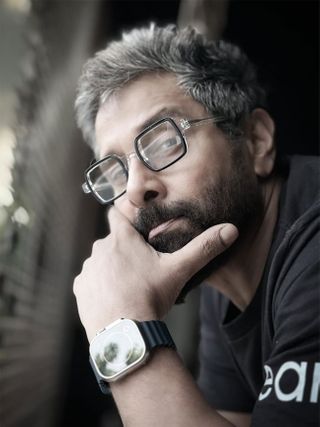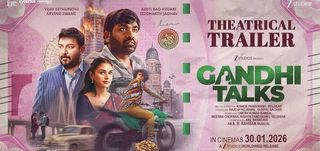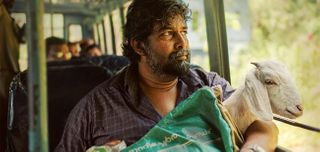Siskiyaan Movie Review
"Death And The Maiden".... not again! We saw female director Kannika Verma do an interpretation of rape and justice in "Dansh". Now a male director, and a fairly sensitive director who did the tender and moving "Dhoop", goes at the Roman Polanski film with a zeal that careens between staged drama and filmed melodrama.
Done mostly on a set representing a Muslim couple's home, "Siskiyan" recreates the horror of the traumatised wife's rape during communal riots in Gujarat in the hands of a doctor who comes visiting.
The nightlong drama unfolds with considerable élan as director Ashwini Chaudhary turns the original material inside out.
While the Muslim woman's rape in the hands of Hindu doctor becomes the fulcrum of the narrative's movement through a maze of exacerbated emotions, the film makes space for some pungent dialogues on how the male gaze falls on feminist issues regarding tender tissues.
Cleverly, the director delays the inevitable inquisition of the rapist in the hands of his victim. A large part of the film's earlier portions are devoted to a growing camaraderie between the husband (Sachin Khedekar) and his mysterious guest (Sonu Sood).
As the journalist and the doctor drink into the night, we are led to look at the masculine perception as being incurably predatory. In one way or another, the woman gets constantly ravaged by the male gaze. This theme is delivered like a splendid blow splattering across the frames.
Writer Sanjay Chauhan makes the verbal exchanges come alive blow by blow, until we are left with the reality of the rape and the victim trying to come to terms with her ravaged past by taking her tormentor to task.
The pounding, over-punctuated background score by Surinder Sodhi takes away the staginess of the stage-play. The cinematography by Arun Verma is ripe and saturated. It spotlights the sense of denuded nostalgia.
If only the narrative had averted the catastrophic, utterly manipulated climactic outburst where, in a hilltop confrontation, the doctor finally shows his rapist's claws.
The climax is more akin to what producer Guddu Dhanoa does in his masala movies than what the sensitive director would do to a story about a certain tragedy coming to catastrophic fruition.
Nonetheless, the well-crafted play-on-film moves through a maze of melancholic hysteria with enough anguished energy to keep us watching.
Both the male actors play against each other with sparring splendour. Khedekar is acutely attuned to the husband's character's opportunistic vanity. Sood is slightly too young and callow to pass off as a jaded rapist. He looks especially unconvincing smoking the pipe, but is sufficiently whiny when confronted by nemesis.
But the film belongs to Neha Dhupia. In a role that demands her to pull out all stops, speak ugly, venomous lines about male vanity and other vital organs, Neha just lets the ravaged character turn into a smouldering mass of hurting, pained womanhood.
Her vocal descriptions of what rape means to a woman are done with a frank sensitivity, bordering on a true confession of a woman who can stand outside her body to look at her own violation.
Both the central performance and the storytelling devices used by the director make this a superior version of "Death And The Maiden" to "Dansh". Though understandably its arrival in theatres after "Dansh" puts "Siskiyan" at a disadvantage.
That's fine. This is a film that isn't about comfortable positions in life.



















